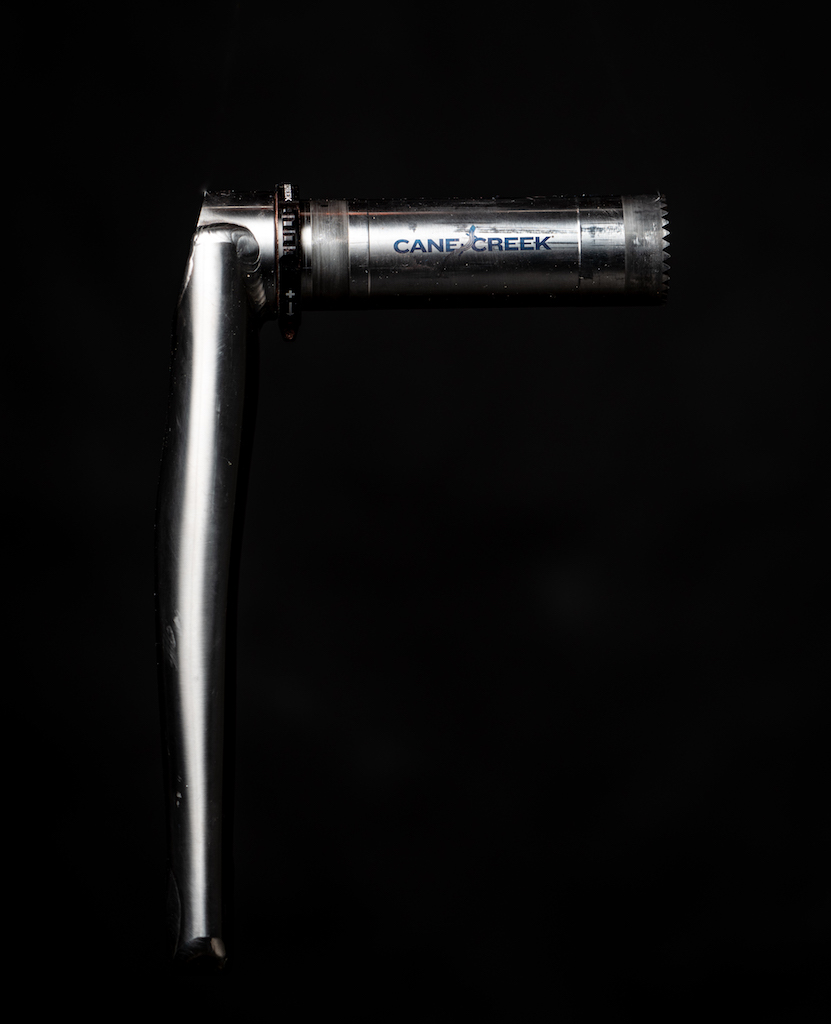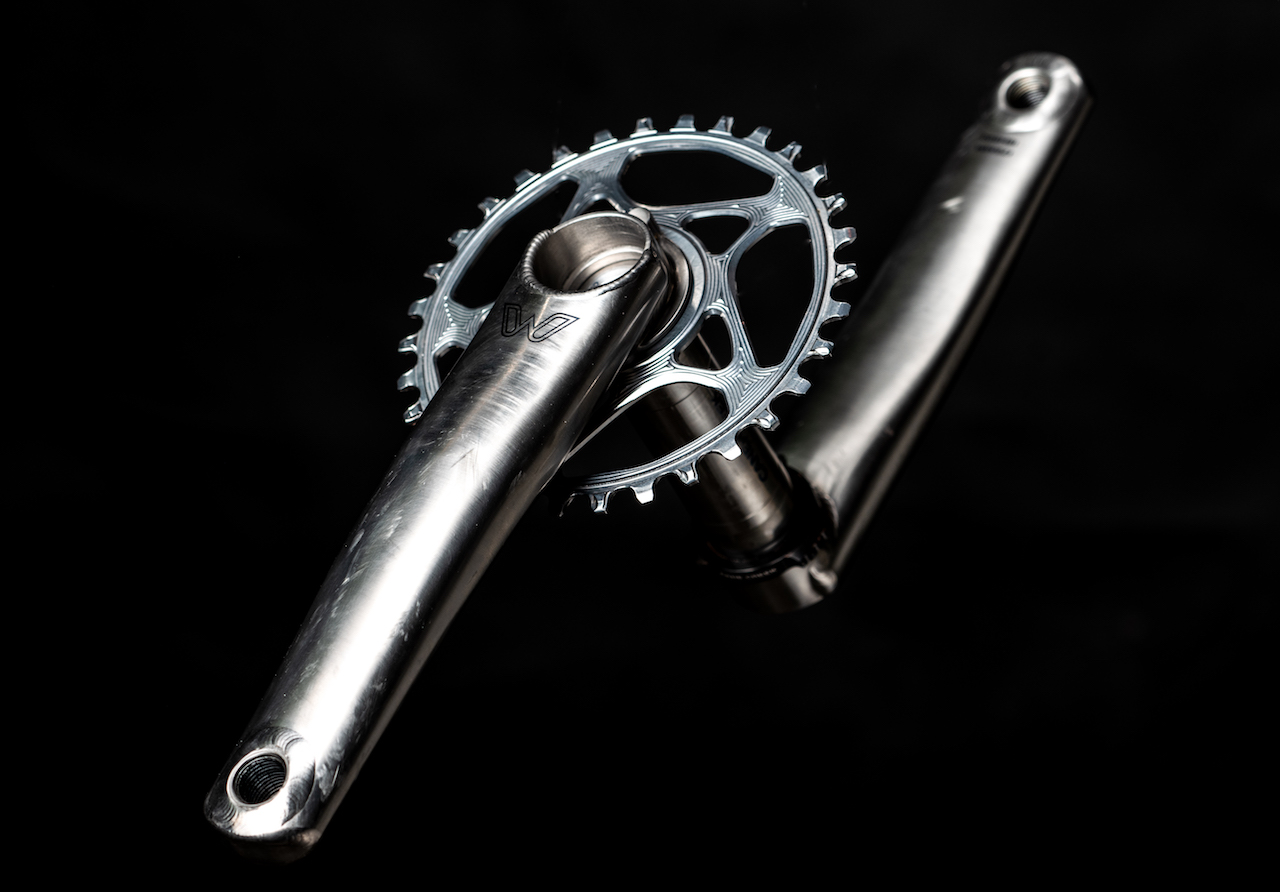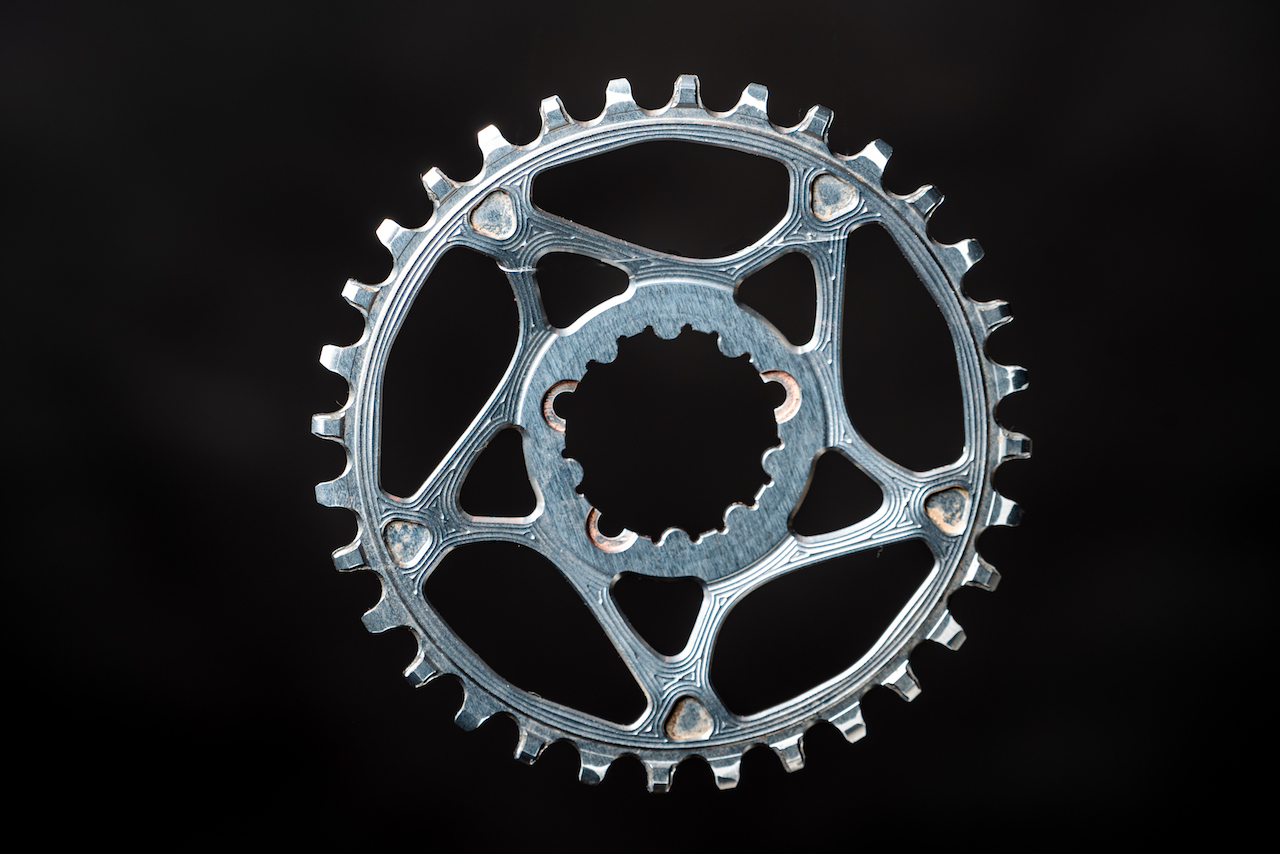Cane Creek eeWings Mountain Crankset
Originally posted on April 23, 2019 at 4:20 amCane Creek eeWings Mountain crankset – $999
By Scott Williams
Typically we would round-up the price of a particular product we are reviewing, but in the case of the Cane Creek eeWings crankset, that last dollar makes the price point a whole lot harder to swallow. Undoubtedly, the eeWings are not for everyone; they’re a luxury item. Similar to custom-built frames and top-end drivetrains, this far end of the spectrum is not necessary for having fun riding a bike. There are a handful of cheaper crankset options out there that are durable and light-weight enough for most riders at a more palatable price point. But — and there is a big but in there — Cane Creek’s eeWings, constructed from the most lust-worthy, drool-inducing material, titanium and backed by a 10-year warranty and are not intended to be just good enough. They are the crème de la crème.

History
In 2016, Cane Creek partnered up with Craig Edwards from eeCycleworks to take over the manufacturing and distribution of Craig’s eeBrake system. The newly-formed partnership also opened up a door to Craig’s prior work at Sweet Parts with an at-the-time business partner, Kent Carlson. Before shutting its doors, the company created the highly sought-after two-piece Chromoly Sweet Wings crankset produced for only a short period in the mid-’90s. Craig explained during an interview with Fariwheel Bikes that he had made three prototype cranks out of titanium, but unfortunately, the company folded before getting the design to production.
With the newly formed partnership and more advanced manufacturing technology, the titanium crankset project found itself back on the table. Initially, the eeWings were intended for a road application, but a few weeks before the prototype in the summer of 2017, Sam Anderson, product manager for Cane Creek, broke a set of carbon mountain cranks. It was at this moment the company realized there was a lot of opportunity on the mountain bike side to make a bullet-proof crank.

Tech Details
Cane Creek utilized a combination of 3Al-2.5V titanium for the crank arms and 6Al-4V titanium for the 30mm spindle, SRAM X-Sync 3-bolt chainring interface, chainring bolts, 8mm crank fastening bolt and washer, preload adjuster bolt, pedal inserts and lastly, the Hirth joint. The only part not made of titanium is the 1.75mm spindle spacer and preload assembly. Unlike most other high-end cranks, the eeWings adjuster is made from CNC machined 7075 aluminum instead of plastic.
The eeWings are available in 170 or 175mm crank arm lengths with a 98.5mm spindle length at zero preload and provide a 176mm Q-factor.
All this beautifully machined durability is wrapped up in an ultra-light 400-gram package but as Anderson mentions, “The initial testing showed that the cranks were going to be as light or lighter than carbon, which was awesome, but only half the battle.” After real-world testing and deflection tests, Cane Creek realized that the eeWings were also stiffer than carbon cranks in a comparable weight range. “The eeWings moved half as much as the competition under the same load,” Anderson goes on. “[Cane Creek] performed more tests on ultimate strength by placing a carbon crank and the eeWings on the machine and continuously added force until they broke. The eeWings would double or even triple the force values at-failure to the carbon competition.”
For comparison’s sake, the Race Face Next R is 495-grams while the SRAM XX1 Eagle DUB SL is 422-grams, and lastly, the Shimano XTR 9120 is 534-grams. All of these are weights claimed by the manufacturers with a 32T chainring and no bottom bracket.

Thoughts
The Cane Creek eeWings are not only lust-worthy from an aesthetics standpoint, but the eeWings check all the right boxes, at least for me. Again, I fully acknowledge the price. It’s not pocket change by any means: Titanium in itself is an expensive material, then add in the skill required to weld it together and to top it off the intensely machined Hirth joint. It’s said that these cranks are more difficult to weld than a bike frame. Let that sink in for a moment. Cane Creek set out to create a crank in the $600-750 range but determined that the quality would have to be sacrificed to hit that price point. “I am happy that [Cane Creek] did decide to bring [eeWings] to market even after the battle with costs. For something really awesome to come along like this and see the light of day, there are always drawbacks, but for [Cane Creek] we were not going to let that drawback be in performance or quality,” says Anderson.
Now that that’s been addressed, I still like a reasonably light bike, and next to a wheelset, the crank is the next upgrade for shedding some weight. The caveat is that while the carbon cranksets offer a lightweight package, they don’t provide the durability or stiffness that their metal counterpart offers. Pedal strikes happen; it’s silly to think that it’s avoidable altogether in mountain biking. I have finished a race walking my bike due to a broken carbon crank arm on more than one occasion, and it’s not much fun. Thankfully, I got lucky and both instances occurred while I was out-of-the-saddle climbing.

Installation was easy, thanks to the simple pre-load adjuster and use of a standard bottom bracket that accepts a 30mm spindle; full bottom bracket compatibility can be found here. I prefer the cassette lockring-style direct chainring interface that RaceFace uses but will still happily applaud the use of the existing SRAM 3-bolt interface. Keep in mind, titanium will quickly cold-weld itself so make sure you liberally apply the included Ti-prep on all bolt threads and the spindle; don’t be shy, more is better in this scenario.
Conclusion
All in all, the Cane Creek eeWings crankset is a slam dunk and without a doubt the most exciting mountain bike component released in 2018.